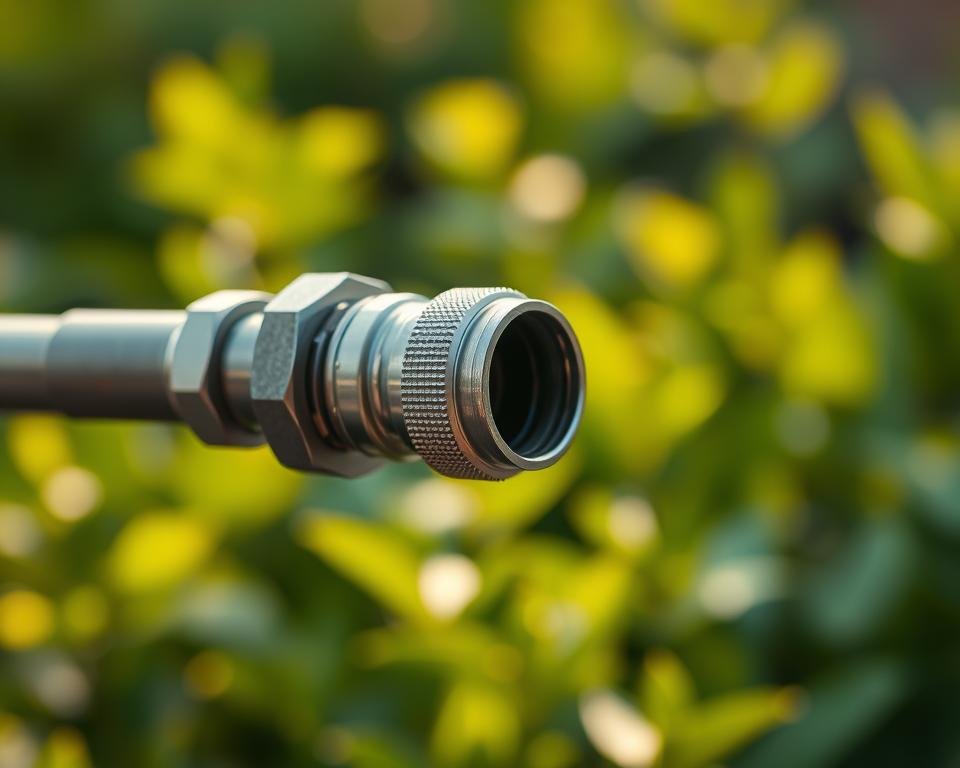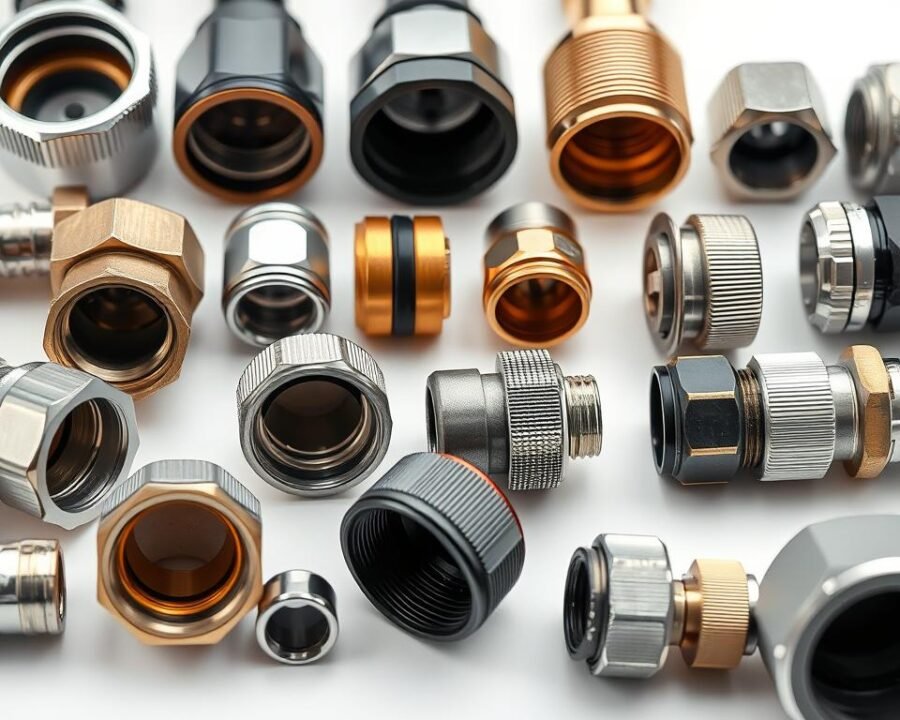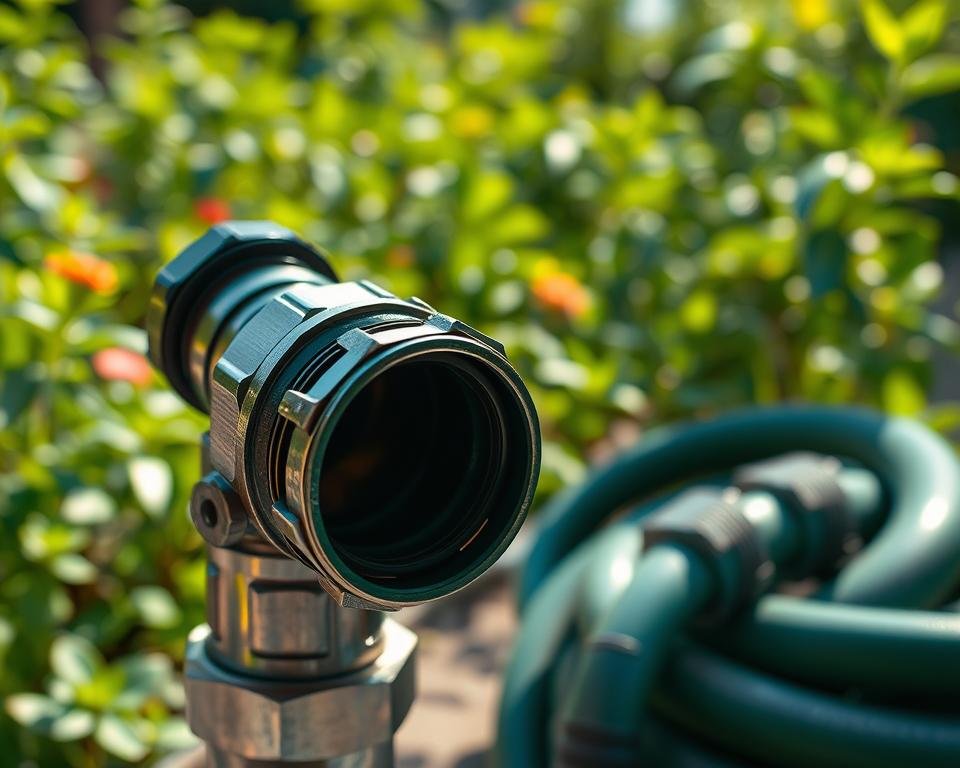Ever struggled with a leaky or inefficient watering setup? You’re not alone. Many of us have faced the frustration of weak water pressure, annoying drips, or connectors that just don’t fit. The right garden hose connector can make all the difference, turning a chore into a seamless experience.
With over 40 types available, from Qwik-Stop™ designs to versatile “Y” valves, the options can feel overwhelming. But don’t worry—this guide is here to simplify your decision. Whether you’re splitting hoses, attaching sprinklers, or connecting to outdoor faucets, the right choice ensures durability, efficiency, and peace of mind.
Material matters too. Brass connectors offer longevity, while plastic options are lightweight and budget-friendly. And if you’re using it for drinking water, lead-free choices are a must. By considering compatibility, application, and material, you’ll find the perfect fit for your needs.
Key Takeaways
- Choosing the right connector improves water pressure and prevents leaks.
- Over 40 types are available, including Qwik-Stop™ and “Y” valves.
- Materials like brass and plastic offer different benefits.
- Lead-free options are essential for drinking water safety.
- Consider compatibility with your existing equipment.
What Is a Garden Hose Connector?
The unsung hero of your outdoor setup is often overlooked. This small but essential piece of equipment links your water source to nozzles, sprinklers, and other tools. Without it, your watering system wouldn’t function properly.
In North America, the standard size is 3/4″, which fits most setups. Smaller sizes like 1/2″ and 5/8″ are also available for specific needs. Choosing the right size ensures a snug fit and prevents leaks.
Materials play a big role in performance. Brass is known for its durability and resistance to corrosion, making it a long-lasting choice. On the other hand, plastic options are lightweight and budget-friendly, ideal for casual use.
There are two main types of systems: threaded and quick-connect. Threaded designs require twisting to secure, while quick-connect systems, like Qwik-Stop™, allow for fast and easy attachment. Both have their advantages, depending on your needs.
For detailed technical specifications, check out the product pages in our catalog. This will help you make an informed decision based on your specific requirements.
Types of Garden Hose Connectors

Not all connectors are created equal—choosing the right one matters. Whether you’re attaching tools, splitting water flow, or preventing leaks, the type you pick can make a big difference. Let’s explore the most common options available.
Male Quick Connects
Male quick connects are designed for easy attachment. They often feature a color-coded system for quick identification. With a 1/4-turn locking mechanism, they ensure a secure fit and prevent accidental disconnections. These are ideal for high-pressure setups.
Female Quick Connects
Female quick connects work seamlessly with their male counterparts. They’re built for convenience, allowing you to switch tools without hassle. Like male versions, they use a 1/4-turn lock for reliability. Perfect for those who value speed and efficiency.
Swivel Connectors
Swivel connectors, like Item #90609, offer 360° rotation to prevent kinks and tangles. They’re a game-changer for flexible setups, ensuring smooth water flow even in tight spaces. Made with lead-free materials, they’re safe for potable water systems.
Specialty Connectors
Specialty types include “Y” valves for dual watering and shut-off caps for added control. Niche options like SAE flare adapters (Item #90605) are perfect for RVs, while washer packs ensure leak-free connections. These cater to unique needs and advanced setups.
For detailed specifications, check out the product pages in our catalog. This will help you find the perfect match for your requirements.
Key Features to Consider When Choosing a Garden Hose Connector

Small details make a big difference in performance. Whether you’re upgrading your setup or starting fresh, focusing on the right features ensures a seamless experience. Let’s break down the essentials to help you make an informed decision.
Material and Durability
The material you choose impacts longevity and performance. Brass options are known for their strength, handling pressures over 200 PSI and resisting corrosion. On the other hand, polymer models are lightweight and budget-friendly, with pressure limits around 80 PSI. Consider your usage—durable brass is ideal for heavy-duty tasks, while polymer suits casual needs.
Compatibility
Ensuring a proper fit is crucial. Check thread types like NPT (National Pipe Thread) or GHT (Garden Hose Thread) to match your equipment. Also, verify hose diameters to avoid leaks or inefficiencies. A quick compatibility checklist can save you time and frustration.
Ease of Use
Convenience matters. One-hand quick disconnects simplify tool changes, while traditional threaded collars offer a secure fit. Swivel designs add flexibility, preventing kinks and tangles. Choose based on your workflow—speed or stability.
Leak Prevention
No one likes a messy setup. Rubber washers and double O-rings are essential for a tight seal. These small components prevent drips and ensure efficient water flow. Always inspect these parts during installation for a leak-free connection.
“The right choice isn’t just about function—it’s about reliability and peace of mind.”
Before purchasing, check pressure ratings and temperature ranges (-20°F to 160°F) to ensure compatibility with your setup. Package deals (3-10 packs) are great for frequent users, offering value and convenience. With these features in mind, you’ll find the perfect match for your needs.
Conclusion
Making the right choice for your outdoor setup doesn’t have to be complicated. With over 30+ combinations available, you can find the perfect fit for your needs. Focus on key factors like material, size, and connection type to ensure durability and efficiency.
For beginners, starter kits like the 3-pack swivel adapters (Item #90854) are a great way to get started. They offer flexibility and ease of use, making them ideal for various tasks. Don’t forget to bookmark the manufacturer’s page for quick access to future updates and product details.
Most products come with a 1-year warranty, giving you peace of mind. Contractors can also take advantage of bulk pricing for larger projects. Ready to upgrade? Compare prices and explore current deals to find the best value for your setup.
